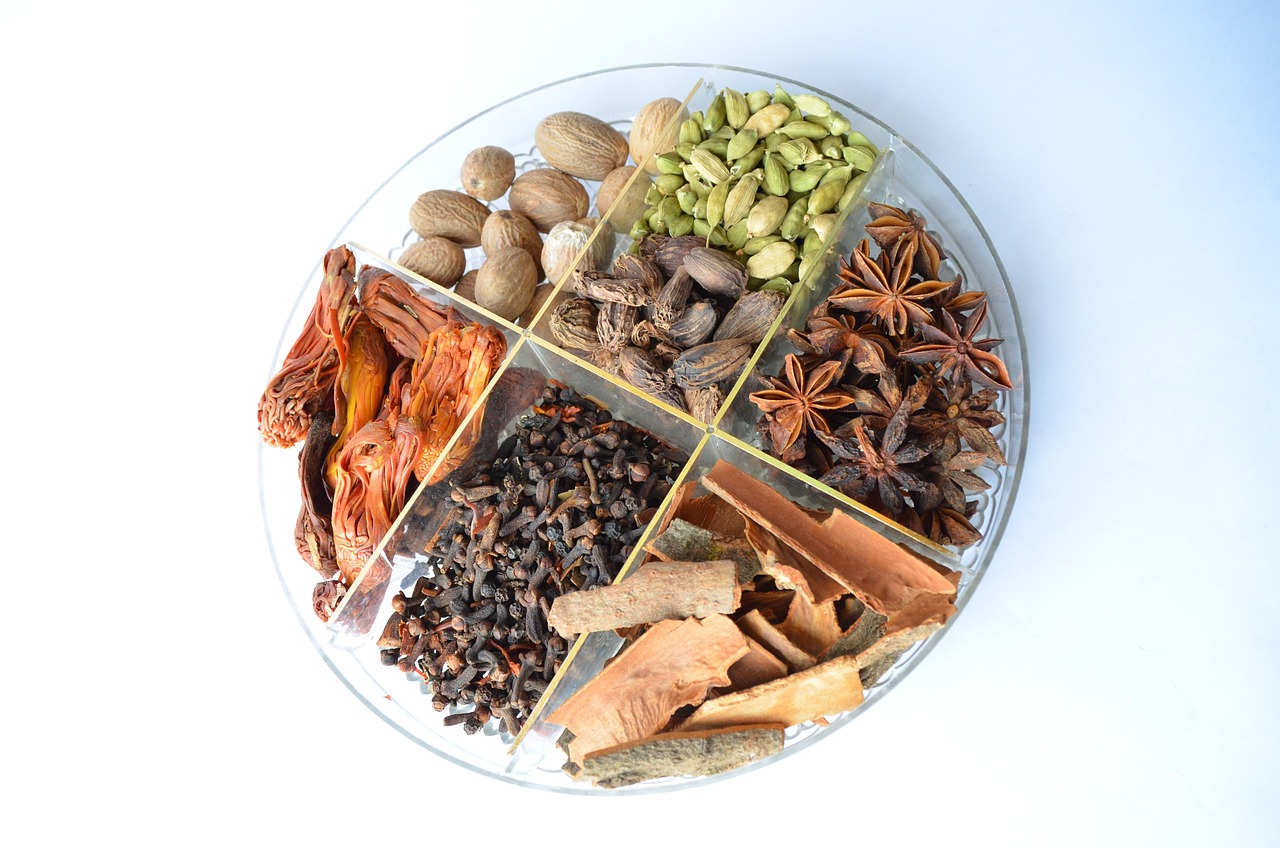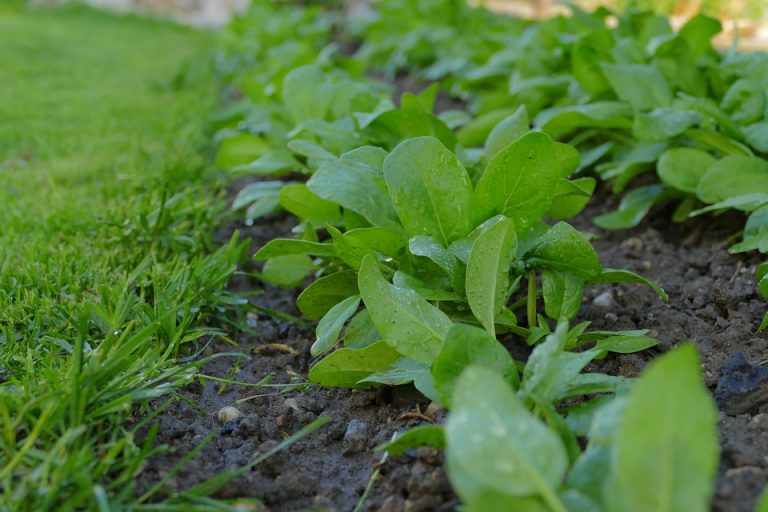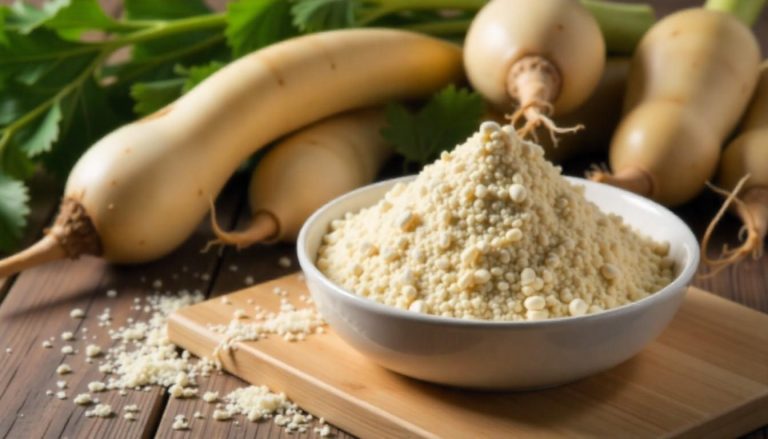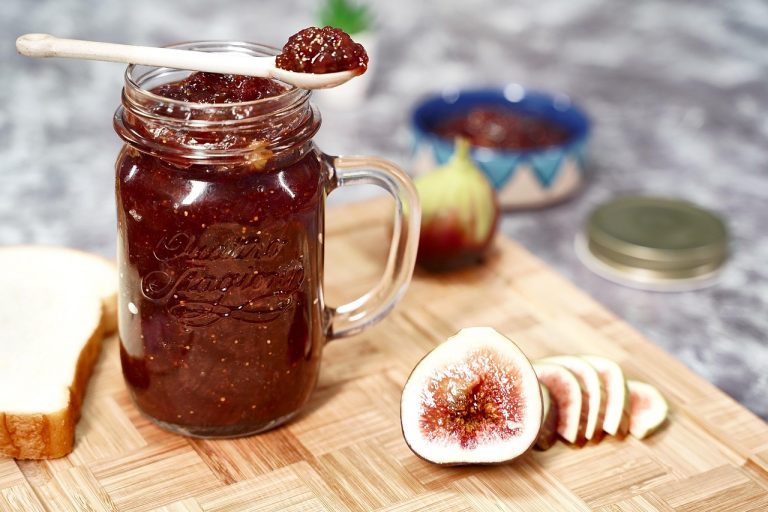Have you ever wondered why certain cultures seem to have a more vibrant approach to intimacy and wellness? Often, it’s not just about the atmosphere or the people involved—it’s also about what they eat. Spices play a pivotal role in enhancing not just flavor but also our health and relationships. Let’s dive into five spices that can elevate both intimacy and overall wellness, making your meals not just delicious but also beneficial.
Contents
1. Cinnamon: The Sweet Intimacy Booster
Cinnamon, with its warm, sweet aroma, is often associated with cozy moments. But did you know that this spice has powerful effects on your body?
Benefits
Cinnamon is rich in antioxidants and has anti-inflammatory properties. It can help regulate blood sugar levels, which is crucial for maintaining energy levels and mood stability. A 2019 study published in the Journal of Nutrition found that cinnamon may improve insulin sensitivity, which can enhance sexual function by promoting better blood flow (Khan et al., 2019).
Practical Use
Sprinkle cinnamon in your morning coffee or oatmeal, or use it in a romantic dessert like cinnamon-spiced apples. The warmth of cinnamon can create an inviting atmosphere that encourages closeness.
Caveats
While cinnamon is generally safe, excessive amounts can lead to issues like liver damage due to coumarin, particularly in Cassia cinnamon. So, moderation is key!
2. Ginger: The Fiery Health Enhancer
Ginger is another spice that packs a punch—not just in flavor but also in health benefits.
Benefits
This root is well-known for its anti-nausea effects but also plays a role in improving circulation and reducing inflammation. According to a study published in the American Journal of Physiology, ginger can enhance circulation and may increase testosterone levels, which can boost libido (Khan et al., 2018).
Practical Use
Add fresh ginger to stir-fries, smoothies, or teas. You could even make a ginger-infused honey to drizzle over desserts or use in cocktails. The spicy kick of ginger can invigorate the senses and set a passionate tone.
Caveats
Some people might experience heartburn or digestive issues with ginger, especially in high doses. Always listen to your body!
3. Turmeric: The Golden Healer
Turmeric has gained popularity in recent years, and for good reason. This golden spice is a powerhouse of health benefits.
Benefits
Curcumin, the active compound in turmeric, has been shown to have anti-inflammatory and antioxidant properties. A review in the Journal of Medicinal Food highlighted its potential role in enhancing mood and cognitive function (Jiang et al., 2019). Improved mood can lead to better intimacy, as emotional connection is key in relationships.
Practical Use
Incorporate turmeric into curries, soups, or even golden milk. You can also create a turmeric latte for a cozy evening drink. The vibrant color and warm flavor can make any meal feel special.
Caveats
Turmeric can interact with certain medications, so it’s wise to consult with a healthcare provider if you’re on medication.
4. Cardamom: The Exotic Aphrodisiac
Cardamom is often seen as a luxurious spice, and it’s not just for show.
Benefits
Known as the “queen of spices,” cardamom is believed to have aphrodisiac properties that can enhance sexual desire. A study published in Phytotherapy Research found that cardamom oil increased sexual performance in male rats, suggesting a positive effect on libido (Hussain et al., 2017).
Practical Use
Add cardamom to chai tea, desserts, or even savory dishes. The unique flavor can create an exotic dining experience that sparks intimacy.
Caveats
While cardamom is safe for most people, those with allergies to other spices should approach it with caution.
5. Chili Peppers: The Heat of Passion
Chili peppers are not just for those who enjoy spicy food; they also have benefits that can enhance your intimate life.
Benefits
Chilies contain capsaicin, which can increase blood flow and stimulate nerve endings. A study in the Journal of Sexual Medicine found that capsaicin can boost sexual arousal and enhance pleasure (Bourne et al., 2016). So, if you want to spice things up, literally, these fiery peppers might be the way to go.
Practical Use
Incorporate chili peppers into salsas, sauces, or even chocolate dishes for a surprising kick. The heat can create an exciting atmosphere, perfect for date night.
Caveats
Not everyone can handle spice, so be mindful of your partner’s preferences. Start with a small amount and gauge the reaction.
FAQs
1. How can I incorporate these spices into my diet?
You can sprinkle them on your meals, blend them into smoothies, or use them in baking. Be creative and experiment with different dishes!
2. Are these spices safe for everyone?
Most people can enjoy these spices in moderation. However, if you have allergies or are on medication, consult your healthcare provider.
3. Can spices really improve intimacy?
Yes, many spices have properties that can enhance mood, circulation, and even libido, which can contribute to a better intimate connection.
4. How much of these spices should I use?
Moderation is key. A teaspoon or two in your meals is a good start, but always listen to your body and adjust according to your tolerance.
Conclusion
When it comes to intimacy and overall wellness, the journey is as much about what you eat as it is about how you connect with your partner. Incorporating these five spices—cinnamon, ginger, turmeric, cardamom, and chili peppers—can not only enhance your meals but also elevate your relationships.
So, why not take a culinary adventure together? Get cooking, experimenting, and enjoying the delightful flavors these spices bring. You might just find that a little spice in the kitchen translates to a lot of warmth in your relationship.
And remember, while these spices can contribute to overall wellness, they are not magic bullets. Always consult a healthcare provider for personalized advice.
References
-
Bourne, M., et al. (2016). Capsaicin and Sexual Arousal: A Review. Journal of Sexual Medicine. https://www.journalofsexualmedicine.com/article/S1952-4531(16)30265-2/fulltext
-
Hussain, T., et al. (2017). Aphrodisiac Effects of Cardamom in Male Rats. Phytotherapy Research. https://onlinelibrary.wiley.com/doi/full/10.1002/ptr.5773
-
Jiang, H., et al. (2019). The Effects of Curcumin on Mood and Cognitive Function. Journal of Medicinal Food. https://www.liebertpub.com/doi/10.1089/jmf.2018.4299
-
Khan, A., et al. (2018). The Impact of Ginger on Testosterone Levels and Sexual Function. American Journal of Physiology. https://journals.physiology.org/doi/full/10.1152/ajpregu.00257.2018
-
Khan, I. A., et al. (2019). Cinnamon and Its Effects on Insulin Sensitivity. Journal of Nutrition. https://academic.oup.com/jn/article/149/3/453/5230226
This article is for educational purposes only and is not a substitute for professional medical advice. Always consult a qualified healthcare provider before making changes to your health routine.
Get Your FREE Natural Health Guide!
Subscribe now and receive our exclusive ebook packed with natural health tips, practical wellness advice, and easy lifestyle changes, delivered straight to your inbox.






